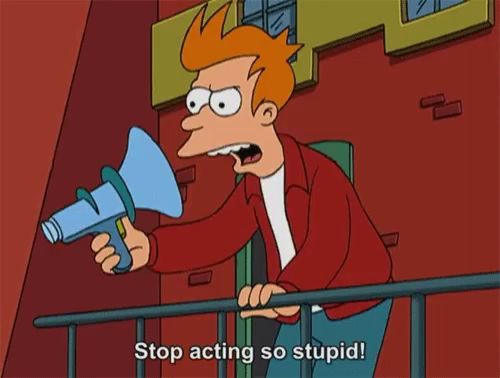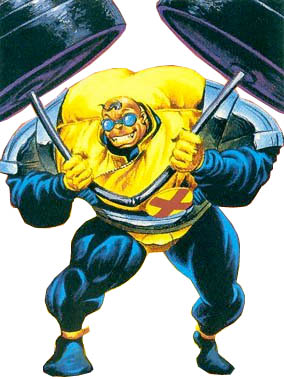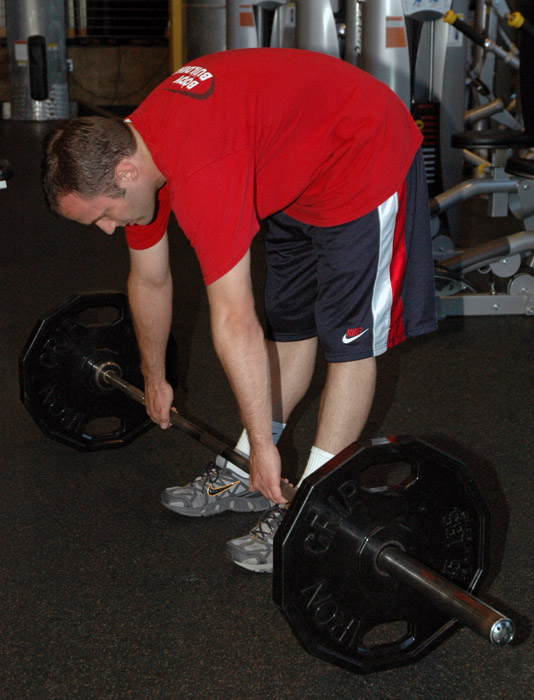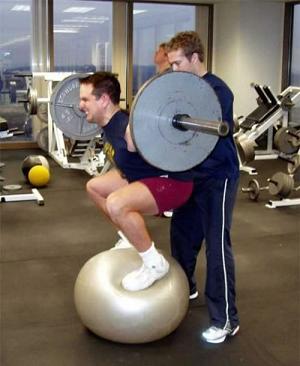This becomes
an interesting topic to write on, as I’m an advocate for the practice of
ignorance and in general champion the benefits of ignorance for the purpose of
training, but I find myself struggling in regards to the ethical dilemma of
possessing ignorance as it relates to the signal to noise ratio. For those unfamiliar with the concept of
signal to noise ratio, a google search will benefit more than my ham-fisted
explanation, but essentially it refers to the notion of the ratio of good information
to bad information as it relates to a dialogue on a topic. In an ideal situation, there is more good
information than bad, in most cases, the reality is far more upsetting. Why is there so much bad information out
there? Because there is very little
limiting people from expressing bad information, and, when combined with few
people that actually have good information to share, the ratio is incredibly
poor.

I don't care that this picture is huge: this comic was awesome back in the day
So where do
ethics factor into this? It relates to
the fact that YOU, as a member of society, have an ethical imperative to
contribute and better this signal to noise ratio. True, at least, if you do in fact love the
community that you purport to love. How
many “powerlifting or death” die hards out there spend the majority of their
day spewing nonsense online? Sharing
stupid memes? Posting stuff purely for
the sake of getting a reaction? Telling
the same stupid punchlines over and over again?
Basically USING the community rather than contributing to it? These people supposedly love their sport,
live their sport, breathe their sport…and are doing everything in their power
to make it worse. In their act of
selfishness, they in turn spite their OWN self-interest, for their pursuit of
alleviating boredom kills their sport and its community.
And this is
simply those who pursue (and fail at) comedy.
What of those that actually “contribute” to legitimate discussion…and do
so with zero actual ability to do so?
Those who talk about how competitors should compete, despite having
never competed themselves. Those who
share their opinions on science, despite having no actual education and only
ever reading the abstracts? Those who
opine on getting more muscular who are skinny?
Those who comment on getting stronger who are weak? The unqualified advising the qualified? Can you all PLEASE kindly shut the Hell
up? Just for a second? Someone important is talking, and I’m trying
to hear them, and I can’t over the sound of you screaming about sumo being
cheating.

I relate way too well to this
“But my free
speech!” Hey kids, here’s a hot tip: if
the only reason you are doing something is because it’s not illegal, what you’re
doing is a bad thing. It’s not illegal
for me to wear a gallon of cologne out in public or to microwave fish in an
office, but it sure makes me an a-hole. The
KKK and the Westboro Baptist Church are well within their rights to
demonstrate, and they are objectively awful people and organizations. The law does not determine ethical
imperatives, and many people violate laws in the pursuit of the ethical right,
while many others are fully within the law and ethically evil. If the only reason you speak is because no
one is preventing you from doing it, what you have to say is not worthwhile.
“It’s just
my opinion!” Hey, guess what: your
opinion doesn’t matter, so stop sharing it.
If you think you have a right to share it, refer to the above
paragraph. You sharing your opinion is
NOT harmless; it’s making us all worse as a society. You have actively made it MORE difficult for
people to get good information on a topic, because now your awful, stupid
opinion has polluted the dialogue. Now,
someone else has to hear your opinion, weigh, measure and evaluate it against
the millions of OTHER awful opinions out there before finally getting to the
good stuff. And, if that lone traveler
through your society is as equally uninformed as you, they may accidentally
think that what you say IS right…because it’s what they keep hearing. Mainly because the signal to noise ratio is
so incredibly poor that it’s impossible to get to the good information…mainly
because of you and people like you.
A better ratio woulda made sure something like this NEVER happens...
Be ignorant:
I implore you to do so. Ignorance is
strength. Ignorance keeps you from
getting distracted. It puts on the
blinders, and keeps that signal to noise ratio from getting to you. By not trying to learn, you won’t
accidentally learn wrong. HOWEVER, if
you choose to be ignorant, be ignorant in SILENCE. Stay in your lane. Why do you think it is that, in over 6 years
of writing, 300+ posts, all around 1000 words, I keep saying essentially the
same things? Because this is what I
know. I can talk about this with
confidence, knowing that what I’m contributing is of value to the
dialogue. I do not discuss science, because
I an inept there. I do not evaluate
programs I have not run, because that would be making the dialogue on the topic
worse, not better. I do not contribute
my opinion when it would be a meaningless opinion, despite the fact that I am
within my right to do so, because it is not the RIGHT thing to do. I leave these areas of expertise to the
actual experts, and when they speak, I do not interrupt.
And if I DO
want to contribute to the dialogue, I earn the ability to do so. I’ve been training for 19 years: there are a
FEW things I can talk to as a result.
And if you are junior to me in that regard, that just means you have the
potential to earn the ability to speak to SO many topics…if you are so inclined. You can become experienced or legitimately
educated, but in either capacity, you can become someone whose opinion DOES
matter, and your contribution will be an ethical one. It’s up to you to ask yourself that question
though: before you open your mouth, before you write a post, before you comment
on facebook, or write something on Instagram, or in any way voice your opinion
on a topic, is what you’re about to say going to benefit the people who hear
it?








